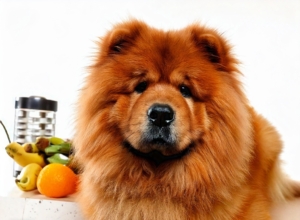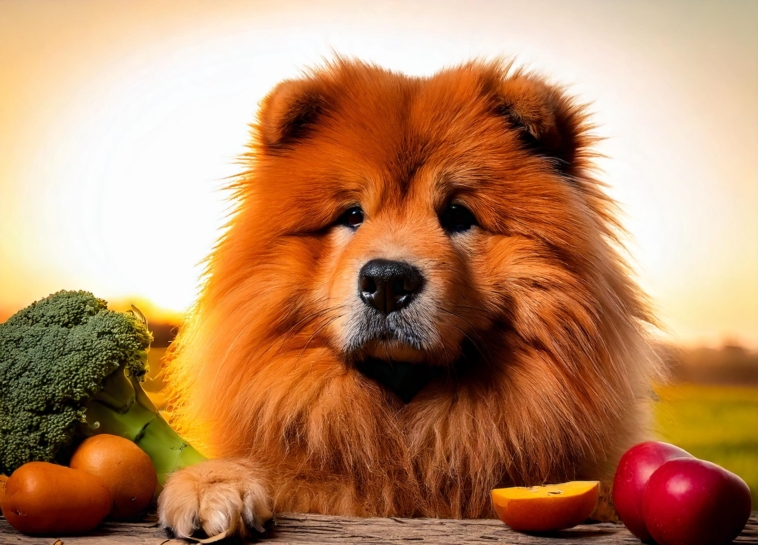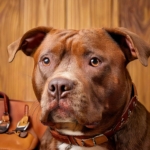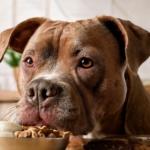Last updated on November 6th, 2024
Here’s an overview:
Introducion: Nutrition and Diet Tips For Chow Chow
Proper Eating Habits of Chow Chow Dogs
Homemade Vs Commercial Dog Food What Worked Best for You?
Essential Nutrients That a Chow Chow Needs
Common Diet And Nutrition Issues and Tips to Avoid Them
Portion Control and Feeding Schedule
Treats and Snacks: What’s Safe for Your Chow Chow
Special Dietary Requirements of Chow Chow based on Age and Health
Hydration: How to Keep Your Chow Chow Hydrated
How to Safely Switch Between Different Foods
Do Chow Chow need supplements?
Managing food allergies of Chow Chow
Conclusion: Final Tips on Nutrition and Diet of Chow Chow
Introducion: Nutrition and Diet Tips For Chow Chow
Chow Chows are different than any other breed which means they have unique dietary requirements. The protein, fat, and carbohydrate ratio has to be balanced. Tips to fulfil their nutrition and diet needs:
- High-Quality Protein: For muscle maintenance and energy.
- Healthy fats: Necessary for brain function and healthy skin.
- Carbohydrates: Necessary for energy but need to be minimized.
It is advised to keep portion sizes uniform in order to prevent obesity, a very common problem. Always note allergens and particular susceptibilities. Constantly flush water and also ask a vet for specialized dietary plans. Nutritional requirements must be reviewed during routine visits.
Proper Eating Habits of Chow Chow Dogs
Because of their distinct origins, Chow Chow dogs possess unique characteristics in their diet. In order to keep fit and energetic, a healthy diet is needed. They include, but are not limited to:
- High-Quality Protein: Major component of the muscle as well.
- Healthy Fats: Keeps skin as well as fur shiner.
- Complex Carbohydrates: Helps in providing energy.
- Vitamins and minerals: Important to strengthen immune response and bones.
Aside from engagement considerations, there are certain nutrients to emphasize.
- Omega-3 and omega-6 fatty acids: Helps make fur shinier.
- Glucosamine and chondroitin: Assist in the maintenance of joint health.
- Probiotics: Useful in digestion.
There is a necessity in feeding Chow Chows small portions at regular intervals.
What Feeding Your Chow Chow?
To keep a Chow Chow fit and healthy, one of the factors to consider is the right diet. You should consider:
Nutritional Requirements:
- Proteins: Very important for muscle growth.
- Fats: For energy and improving fur.
- Carbohydrates: For energy and proper functioning of the digestive system.
Ingredients to Avoid:
- Artificial Enhanced Additives: Dangerous when consumed in big amounts.
- Fillers: They are low nutritional substances that promote weight gain.
- By-products: These have very little nutrients.
Special Considerations:
- Need of the individual: Attention to age differences such as puppies and adults.
- Allergy and frags: Stress on allergic substance to prevent Ummin consumption.
- Level of activity: Varying caloric intake due to changes in physical activity.
Homemade Vs Commercial Dog Food What Worked Best for You?
Homemade Dog Food:
Pros:
- Pet owner control over what goes into dog’s food: There is certainty among pet owners over what goes into the meals.
- Can customize the meal to target allergies or dietary needs: For any allergies, special dietary needs can be created.
- Better quality ingredients: Enough preservatives reduce the need for a substitute.
Cons:
- High risk of low nutritional foods: Given the nature of meals prepared, some essential nutrients can be missed out on completely.
- Lengthy preparations: A lot of time is needed for preparation and cooking.
- Higher cost of ingredients: Most coos use expensive ingredients.
Commercial Dog Food:
Pros:
- They do not require any preparations: Cuts the time and effort needed to put a meal together.
- Consistency: The nutritional value is the same and also controlled.
- Variety: A wide selection of different types or grades.
Cons:
- Quality: Different manufacturers can use very poor and cheap quality or fillers.
- Preservatives: Mostly have artificial constituents, preservatives and stabilizers.
- Allergies: Higher risk of allergens because of high processed ingredients.
Essential Nutrients That a Chow Chow Needs
Chow Chows have specific dietary requirements in order to be in good health. These include the following essential nutrients:
- Proteins: Essential in the development of muscles and their repair with the better source being meat from fish, chicken and beef.
- Fats: A source of energy and also assists in enhancing the skin and coat of the body and may include chicken fat, fish oil or flaxseed oil.
- Carbohydrates: Supply energy and enhance gut health and therefore foods like butternut squash, yam, brown rice and barley are ideal.
- Vitamins: These are fundamental in enhancing proper body immunity and other health aspects and as such fruits and vegetables may provide vitamins A, B, C, D and E.
- Minerals: These are important in maintaining bones and metabolism and such include calcium , phosphorus and zinc.
- Fiber: Helps with digestion and can include green beans, pumpkin and carrots.
Also, water is important in fulfilling their hydration needs and other body functions.

Common Diet And Nutrition Issues and Tips to Avoid Them
The diet and nutrition issues that Chow Chows are prone to tend to affect them poorly if the problems are not properly checked, causes and tips to prevent:
Obesity:
- Cause: Overfeeding, minimal activity, giving high-calorie treats.
- Prevention: Keep track of how much food is given, be active on a regular basis, provide low-calorie snacks.
Food Allergies:
- Cause: The most usual allergens are beef, dairy and wheat.
- Prevention: Through an elimination diet, figure out and cut out allergens, seek the advice of a veterinarian who can test for allergies.
Nutrient Imbalances:
- Cause: Substandard pet food, poorly balanced home made diets.
- Prevention: Use pet food that is of reasonable quality and seek the guidance of a veterinarian about the appropriate diet for the dog.
Digestive Issues:
- Cause: Change of diet abruptly, insufficient levels of fiber.
- Prevention: Introduce new foods gently, fibre should always remain at the correct levels.
How to Read Dog Food Labels
It is vital to know how to read dog food labels in order to select the best food for Chow Chows.
- Ingredients List: The ingredients list has to be the priority number one. The weight is used as the benchmark to determine ingredients ranking which are then listed in order.
- Pay attention to meat sources that are named, like “chicken” or “beef.”
- Avoid terms like ‘meat by-products’ which are not suitable.
- Guaranteed Analysis: Also included in this area are the percentages such as that of protein, fat, fiber, and moisture. Having higher protein is good for dogs.
- Alarm AAFCO notification: Search for the one approved by the Association of American Feed Control Officials (AAFCO) which guarantees a full nutritional supply. .
- 80:20 rule: a marketing tagline limit artificial additives, artificial flavouring agents and any artificial colors. Always look for natural preservatives such as vitamin E.
- Recommended Serving Size: Follow serving suggestions as given on the product label but fine-tune it to the activity and health of the Chow Chow.
Portion Control and Feeding Schedule
It is necessary to place a Chow Chow on portion control program especially if one intends to have the pet for health reasons. The right amount also helps deal with obesity among real as well as health challenges.
- Calorie Needs Individualistic Factors: Use the weight, age and the activity level of the canine to determine the dog’s daily calorific requirement
- Eyeing possible Overfeeding: Use spoons or a kitchen scale to avoid overfeeding.
Feeding Schedule:
- First Time Solo Individuals: 3-4 times a day.
- Grown up Chows: two meals a day An old Canine: one or two smaller meals a day. The practice will facilitate their mid-region regions
- Spectacle Call and Adjustments: Ensure the pet is watched on a routine and portions reset where necessary.
In case all of the measures alluded to above sustain the individual what will assist maintain healthy weight as well as healthy in totality.
Treats and Snacks: What’s Safe for Your Chow Chow
Patients suffering from Chow Chow syndrome need to monitor the amount of structure one takes in every day, and how they eat is of great importance.
- Use food Allowances evaluated using natural elements for both health and appeal.
- Carrot and pea are very low in calories and high in nutrition.
- Onion, garlic, and chocolate are toxic to dogs and should be avoided.
- Apple slices and berries such as blueberries should be offered in small amounts.
- Chicken meat (boiled) and small fishes can be given as protein-rich treats.
- Consult a vet before introducing any new meals to the dog.
In this way, you will promote your Chow Chow’s health and the stability of its weight.
Special Dietary Requirements of Chow Chow based on Age and Health
Stages of life and health conditions of a Chow Chow dog will determine what diet it will have.
- Puppies: Lots of protein and fat is needed as puppies are growing; DHA should also be included for brain development.
- Adults: Should be given a balanced diet but protein and fat should be moderate; should not overindulge in calories.
- Older: Less calorie intake is required with joint relief supplements like glucosamine potentially useful.
- Allergic Dogs: Therapies that are hypoallergenic or those with limited ingredients.
- Digestive Issues: For dogs with such issues, easy to digest with added probiotics foods will do.
- Medical Conditions: Special diets as detailed by the veterinary, renal, liver or diabetic diet plans.
Hydration: How to Keep Your Chow Chow Hydrated
It is important to keep a Chow Chow well-hydrated. That is why it should always have access to clean water. Because of their densely packed fur, Chow Chows may also be susceptible to overheating and thus require more water to remain cool.
How to keep a Chow Chow well hydrated:
- Clean Water: When using spouts, make use of filtered water to eliminate any toxins.
- Keep Track of Consumption: Make sure to monitor this so that required hydration levels are met.
- Frequent Change: Change the water more than once a day, especially when it is warm.
- Bowls: Avoid plastic bowls and use steel or ceramic as these are more hygienic.
- Hydration on the Go: Take self-fed portable water bowls when going out for walks.
How to Safely Switch Between Different Foods
Alterations in diet, including changing a Chow Chow between different foods, should be done cautiously so as not to upset the dietary balance.
Low Percentage Shift:
- Begin with a combination of 25% new food and 75% old food.
- Afterward, gradually raise the ratio of new food by 10-15 percent every few days.
Check for Any Changes:
- Monitor stool quality and energy levels and itchiness or other allergy reactions or gastrointestinal issues.
- Increase or reduce the transition proportion based on your assessment.
Keep to the Schedule:
- Be sure to have appropriate quantities without changes in the time to feed the dog.
- Make sure the dog has clean drinking water anytime it is needed.
Visit a Vet:
- Consider making dietary changes that are appropriate for further nutrient deficiencies in these instances.
Do Chow Chow need supplements?
Chow Chows may also require dietary supplements to help improve their general health. Nonetheless, their use is determined by the specific dietary requirements of the individual.
- Deficiency in Nutrients: Evaluate whether the pet’s average diet caters for all the nutritional requirements.
- Older or Ill Animals: Older pets or those suffering from certain diseases may require supplemental nutrition.
- Seek Medical Advice: It is advisable to see a qualified health professional whenever one is contemplating taking a dietary supplement.
- Examples of Supplements: Omega-3 for good skin, Glucosamine for strengthening joints and Probiotics for good gut health
- Excessive Supplementation Risks: Some diseases can be brought on by excessive use of vitamins or minerals.
Whenever one considers giving supplements to Chow Chow dogs, careful consideration and the right advice are necessary.
Managing food allergies of Chow Chow
Chow Chows should be able to associate food with allergies that they have. Such signs might include:
- Itching and scratching
- Stomach upset
- Ear problems
- Red patches on skin
To treat allergies:
- A qualified vet should identify the cause of the allergy
- Avoid feeding common allergens like soy, wheat or even chicken.
- Opt for a limited ingredient diet.
- Introduce new foods in small amounts, add several different types to see if the dog will exhibit any negative reactions.
- Use appropriate hypoallergenic medicine.
Veterinarian remark:
“The use of a hypoallergenic diet that is balanced should help with managing food challenges in dogs breeds with hyper sensitive stomachs .”
Conclusion: Final Tips on Nutrition and Diet of Chow Chow
Chow Chow feeding is more than just food. Diet ensures good health. Essentials Nutrition and Diet Tips:
- Regularity: Give meals at regular intervals.
- Safety and quality: Select the best balanced, nutrition dense and chemically safe dog food.
- Please be careful: Avoid overfeeding since this leads to an increase in body weight.
- Watering: Always protect water from pollution.
- Snacks: Limited, and as much as is possible best for health.
Regular check up visits to the vet assist satisfy the requirement of the best diet regime. Nutrition is fundamental to the health of any dog. Good feeding habits have a positive impact on the general health of a Chow Chow dog. Follow these Nutrition and Diet Tips to ensure your chow chow is in good health.




